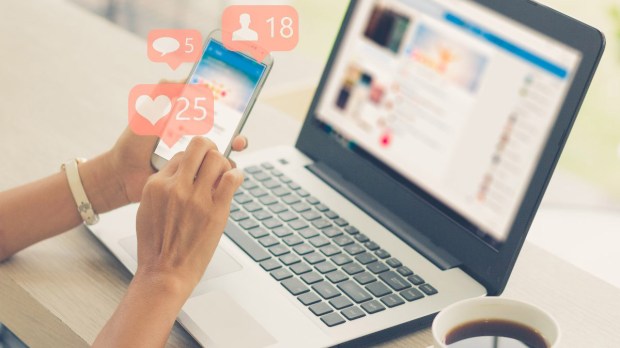Internet use has grown exponentially in recent months, and according to recent studies, it seems that the trend will continue. With so much time spent at home during the pandemic, and work and entertainment spaces closed to varying degrees, online life continues to take center stage and brings many changes in its wake.
Even in places where people are increasingly able to return to shared physical spaces, interactions between people continue to be largely virtual. The virus continues to spread without a vaccine yet available, and this situation continues to push people to use their internet-connected devices to work, play, and connect with others.
It’s not just about connecting through text messages. People are looking for a more personal experience, seeing others and sharing with groups of friends and family through video chats, games or fun activities. In this sense, social networks and other entertainment platforms like Netflix and YouTube have served this purpose, as well as apps like WhatsApp and Telegram.
The use of platforms and services for events and virtual meetings in both academic and professional environments has shot up too. Google Classroom, Zoom, Google Hangouts and Microsoft Teams are particularly popular. New groups have emerged as neighbors or residents of towns and regions have turned to digital platforms to share information among themselves while respecting local COVID-19 restrictions.
Overall, we are spending much more time online and using the internet for almost everything that has to do with our personal lives. Technology has practically become a necessity during social distancing, and many companies, knowing this, have designed specific strategies to keep people glued to their screens.
Dr. Lisa Strohman, known for championing mental well-being as it relates to our digital lives, maintains that our brains are programmed to seek rewards. She says that technology companies working with programmers in collaboration with neuroscientists understand how to harness those primary human impulses.
The goal is not just to produce useful products, but to develop products that keep users “hooked” by actively looking for ways to do strengthen this attraction. People and their personal data ultimately become a kind of product that generates an economic benefit.
In the midst of this boom in digital consumption, specialists agree that it’s important not to forget that technology continues to be a tool, an enabler for human action. Ultimately, it’s a resource that people should use to benefit from its advantages. Things shouldn’t be the other way around, turning people into servants of technology.
Technology has many benefits, but it can be detrimental. One of the factors necessary for it to be a net positive is that it not waste your time, but rather help you make better use of your time when you use it. It should help people grow, increasing their skills and facilitating greater productivity in an intelligent way that improves their quality of life.

Read more:
Fun (and free) things to do when you need a break from the internet
How to find balance
In the current situation of being in a pandemic, the need for digital consumption is not in debate. In order to find balance, however, the key is not to stop using virtual resources, or to use them less, but to consciously do much more than that: We must find a way to give more than we receive. We can’t limit ourselves to being mere passive consumers of the internet, but must actively use online resources to our advantage.
If we know we’re going to spend a lot of time online, why not read things that will help us achieve our goals? One of the great benefits currently being generated by the pandemic has been the increase in educational options available. There are courses, both paid and free, to improve skills or simply expand knowledge. This virtual education can often be combined with work or family, and although it requires some planning, for many it has become a more viable option than before.
A common pattern of behavior often seen among digital users is watching episodes of series, one after another; playing videos non-stop on YouTube; or endlessly scrolling an Instagram or Facebook feed. These mindless actions can be useful to release emotions at a given time, but nothing more. One positive approach would be to consider whether we might go a step further, and create our own channel. Alternatively, we could be selective and watch videos that motivate and inspire us to come up with new initiatives.
Another way to spend time more usefully is by subscribing to an informative newsletter instead of focusing only on social media. Aleteia, for example, sends its news every day by email to those who have subscribed to its newsletter. (You can sign up here.) This way you can avoid reading all kinds of random things that are completely irrelevant. You can catch up with the latest news from a trusted source through a newsletter with the headlines coming directly by email, without having to wade through social media.
It is also useful to remember that if we are using social networks, it’s good to surround ourselves with people who teach, motivate and inspire us to do things better. It’s important to be selective about whom we follow, focusing on those who are doing what we aspire to do. Not only will it help us to be more optimistic, but it will motivate us to take action and perhaps to propose ways to collaborate with them in creative ways.
The internet can be used in many ways, including some that we haven’t even imagined yet. Why not look at how we can make use of tools that have come to us in our workplace? How can we use new resources, improve on others we already have, and take the present situation to innovate or look for new ways to do what we are already doing?
This can be an excellent time to soak up information and create new enterprises, small or large. When we’re connected, we can think about these possibilities with productivity in mind. Rather than just receiving information, let’s transform it into something beneficial for us and those around us.

Read more:
Why the elderly St. Augustine gives us a helpful lesson in the internet age

